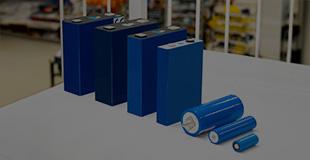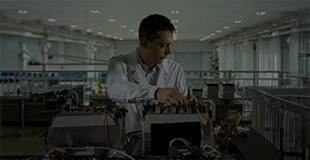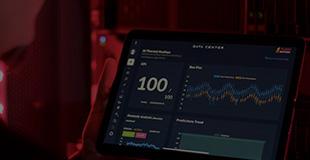Lithium Battery chemistry and safety
Lithium is the lightest known metal and the solid element with the lowest density and highest electrochemical potential. This means it offers excellent energy performance and low weight which is why we have selected it for the Flash Battery batteries!
The Flash Battery lithium batteries with LiFePO4 (LFP) chemistry are the perfect solution for industrial electrification, which for a long time was limited by the poor performance of technologies that are now obsolete, such as flooded lead-acid batteries, lead gel, nickel cadmium, molten salt, etc.
The long service life, high safety levels, recharging speed, and absence of maintenance are just some of the advantages that the LFP chemistry offers for Flash Battery lithium batteries. These benefits, combined with the advanced monitoring electronics, guarantee safety and the highest performance levels for your industrial vehicle.
Advantages of Lithium Batteries
Lithium batteries are the outstanding technology for industrial electrification: the beating heart of environmentally friendly electric industrial machines which deliver high-performance, long service life, and improved energy efficiency.
Available with a range of different chemistries to suit the specific needs of different sectors, lithium batteries are able to overcome the limitations of low efficiency and low energy density which are typical of lead-acid batteries. They are 5 times lighter, have a longer service life, achieve energy efficiency levels above 96%, recharge rapidly, and do not require any maintenance.

The reasons behind Flash Battery’s choice of LiFePO4 chemistry
Choosing the right lithium battery may seem a complex task because not all lithium batteries are the same! These days, there are numerous different chemistries available on the market: LFP, NMC, NCA and LTO are all effective and high-performing, but each is best suited to a different sector.
Flash Battery has chosen to mainly use LiFePO4 (LFP) chemistry, the best option for the needs of the industrial machinery sector, where safety and long life-cycles are the key requirements.
The LFP chemistry is the safest and most stable available on the market, an option which can also meet the intensive requirements of applications which are more energy-intensive and in constant use.
Available in a range of different capacities (from 100 Ah to more than 300 Ah), LFP batteries do not require lots of little cells in parallel which would negatively affect safety.
Did you know that lithium batteries with LiFePO4 chemistry have a very long service life? With a range of between 4000 and more than 8000 full charge cycles, the batteries often exceed the service life of the vehicle itself!
LiFePO4 Batteries: a safe and reliable solution
For anyone wondering whether lithium batteries are dangerous, the answer is no, providing you source them from a reliable and experienced manufacturer whose work is based on 4 key factors.
Chemistry: Flash Battery has mainly chosen LFP chemistry (LiFePO4) because of its high decomposition temperature and slow heat release, a combination which delivers a high degree of safety, even in the event of an internal short circuit.
Assembly: Fewer cells in parallel means improved safety levels! The Flash Battery batteries are made with a maximum of 4 prismatic cells in parallel, to ensure the highest possible safety levels in any situation.
Electronics: A smart BMS makes a difference when it comes to safety! The Flash Balancing System closely monitors the temperature, voltage, and internal resistance of each cell, taking prompt action to prevent any critical issues. To further improve safety, Flash Battery offers the option of adding additional gas detection devices which can anticipate a thermal runaway, as well as fire suppression systems.
Specific testing: To ensure the safety of a lithium battery it is important to subject it to safety and performance testing, to stress the battery in different usage conditions, such as the Nail Penetration Test, which simulates a short circuit.













